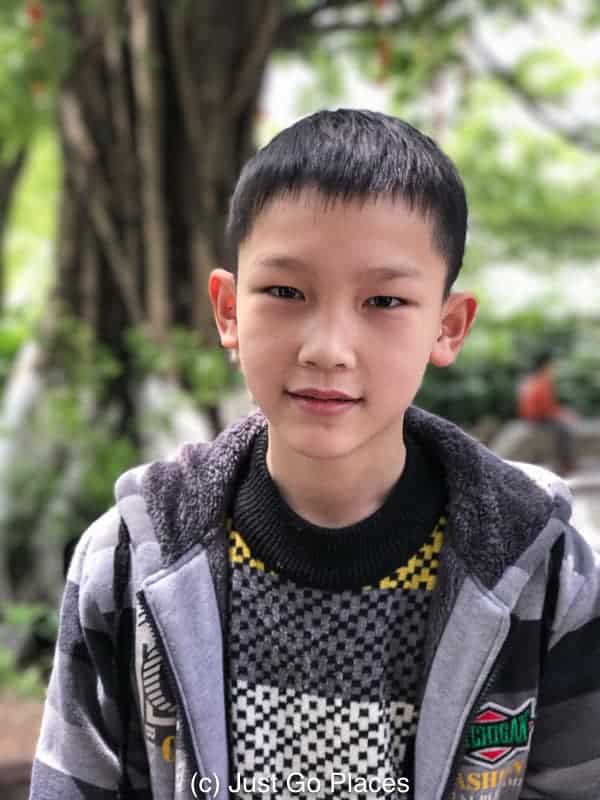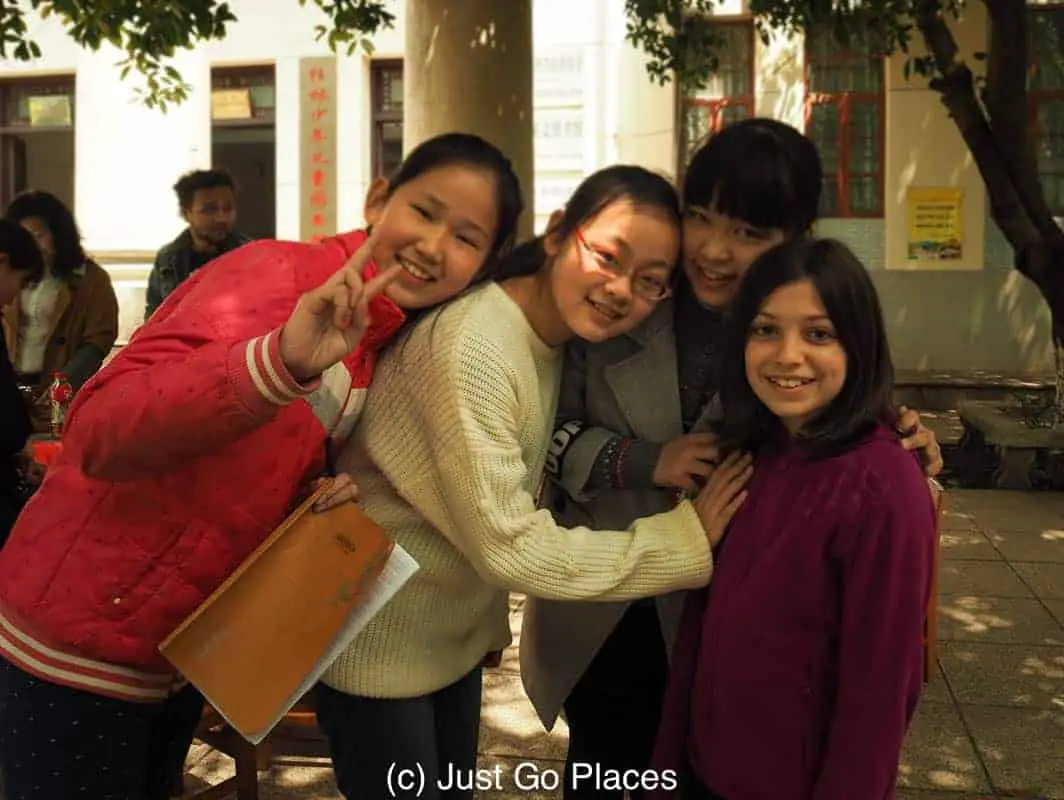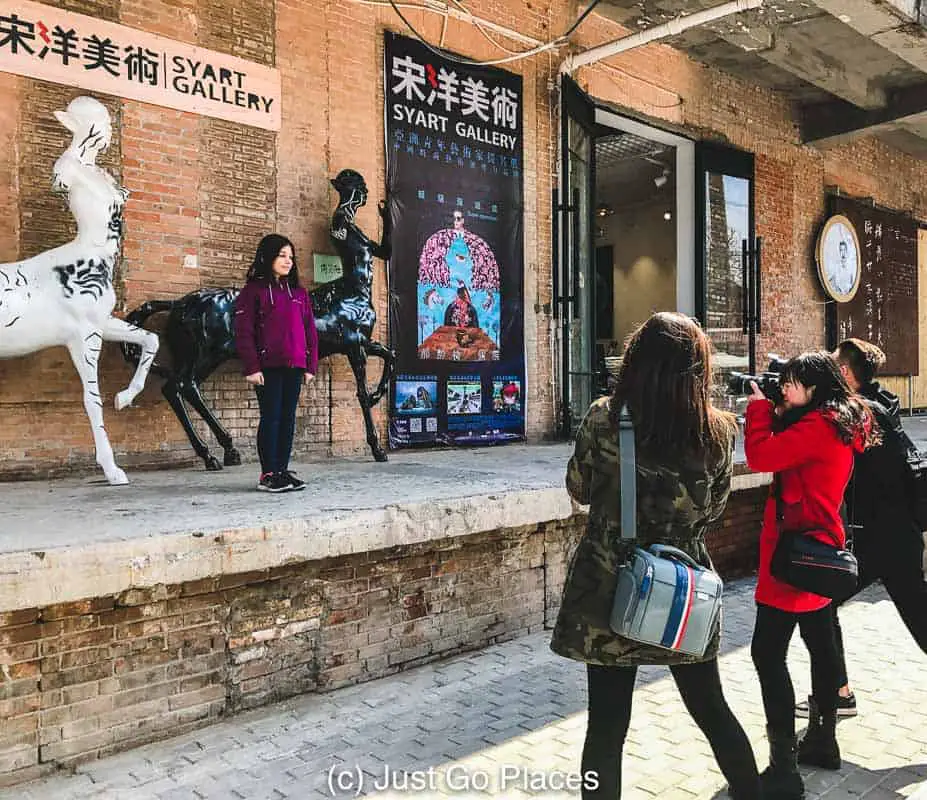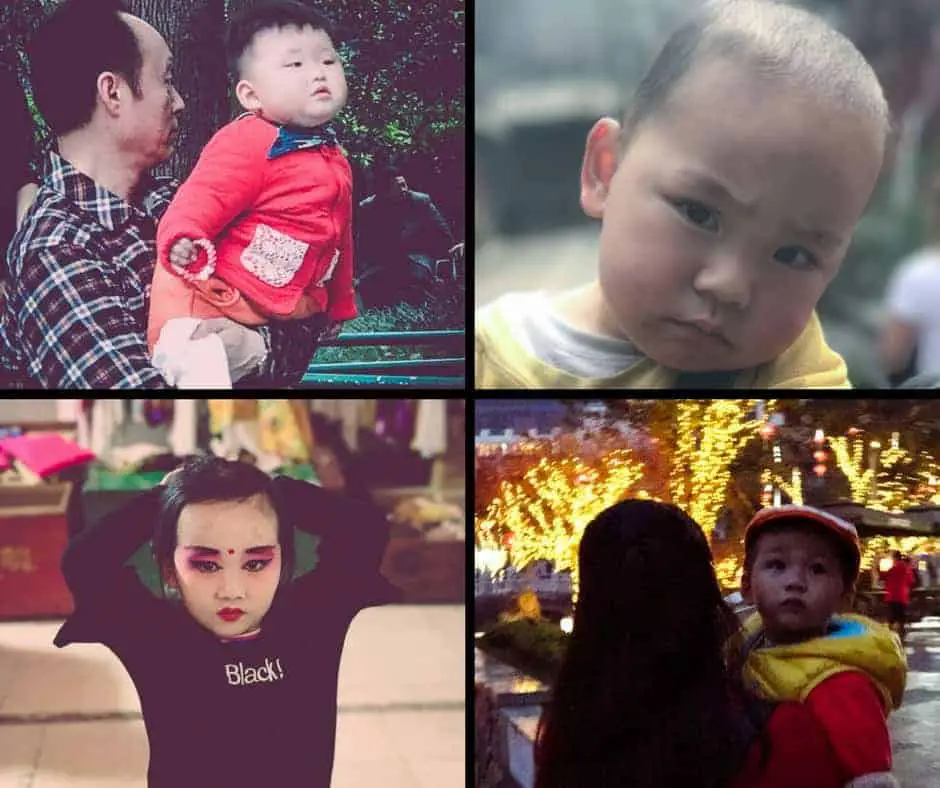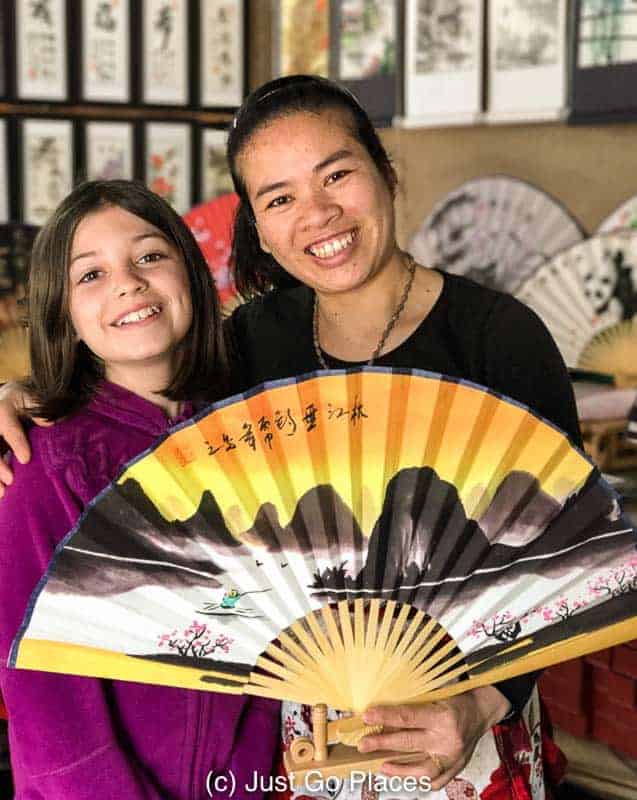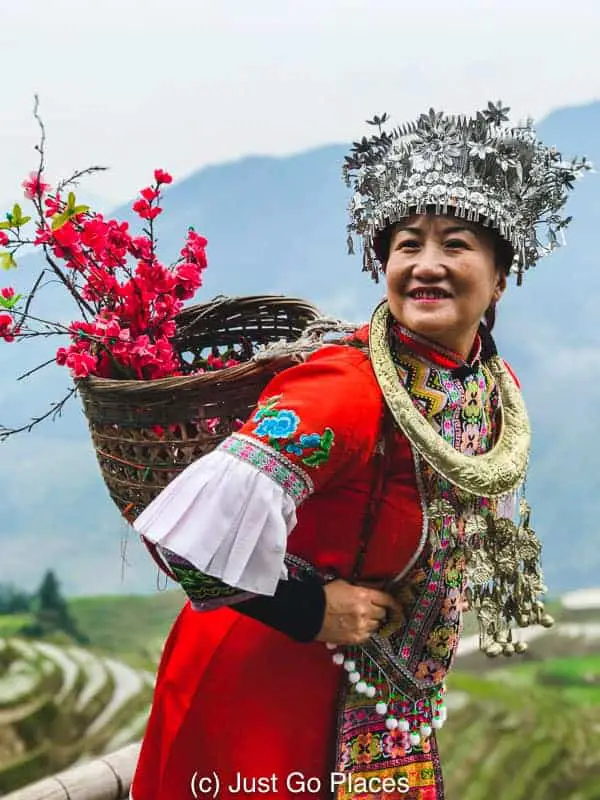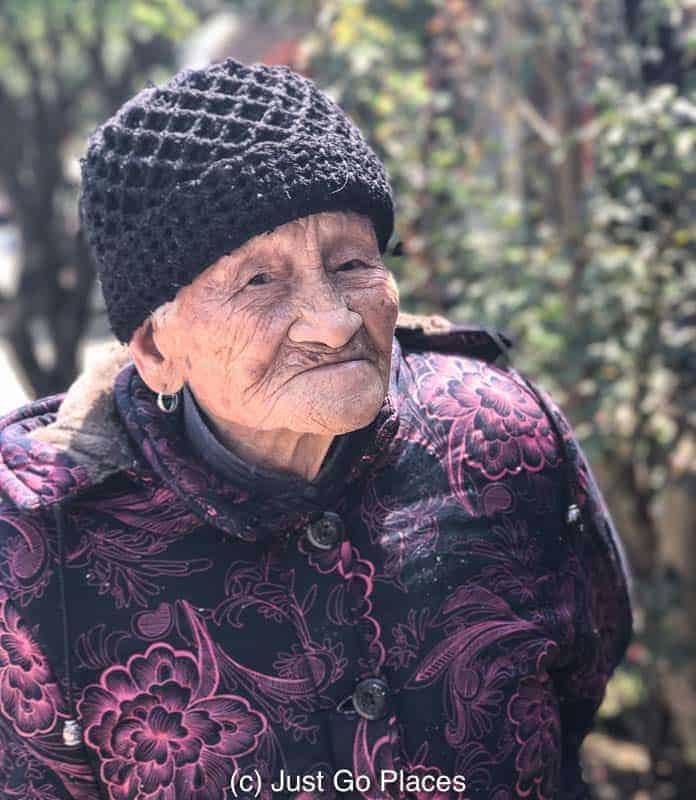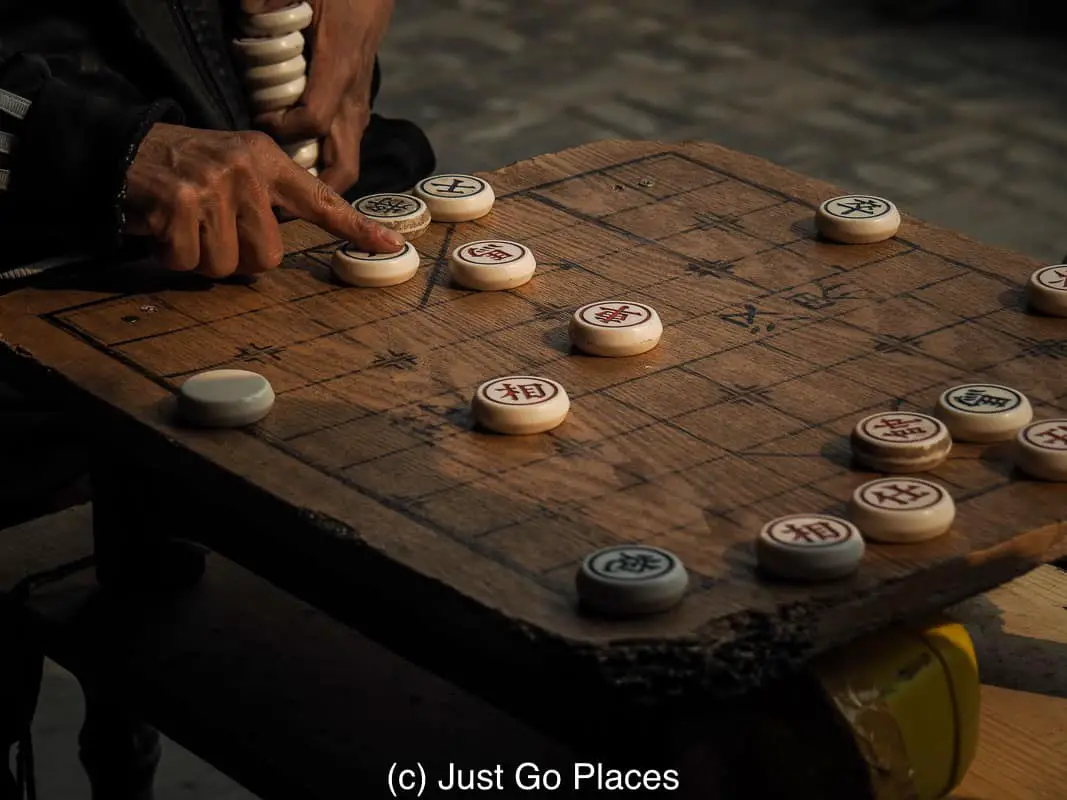I love meeting people and hearing their stories. People’s lives are endlessly fascinating to me. In China, this nosiness presented a problem because we couldn’t speak the language. Luckily, we got on well with Joe, our Abercrombie & Kent tour guide from Guilin who was a professor at a local university. He was curious about people too and ready to engage with them readily. Many of the people we spoke to lived in the countryside in and around Guilin in Guangxi province. They were more willing to speak to us than the sophisticated city dwellers. Through their stories, we pieced together glimpses into modern China that provided a fascinating look at a country and a culture in transition.
Life is infinitely stranger than anything which the mind of man could invent.
– Arthur Conan Doyle, The Complete Adventures of Sherlock Holmes
Contents
That Small Matter of Communication
English in Schools
Chinese children take English classes in school from the beginning. To graduate from university, you need to pass an exam in English. Without the opportunity to speak in English, many graduates are better at written English than spoken English.
Education in China is free for 9 years for elementary school and middle school. Parents need to pay for their child to attend nursery school, high school and university. It’s not a surprise then that many of the wait staff at restaurants can not speak English. You both muddle along as best you can.
My children were in stitches of laughter at one restaurant. The waitress put her face inches from mine and spoke to me in Chinese very slowly, clearly and loudly. I felt it was divine retribution for the bad habit Americans have of doing the same thing in English when they travel abroad.
Yet, no matter even if she used language for a toddler, I still wouldn’t understand her Chinese. In the end, with the use of hand gestures we were able to order a tasty meal. And where was my husband during this conversation? Hiding in the corner hoping the waitress wouldn’t turn her attention to him!
English Corner in Guilin
We met Jake (pictured above) at English Corner, a meeting place for locals who want to practice their English, at Guilin’s Seven Star Park. Needless to say, having native English speakers in their midst set off a flurry of excitement and photo taking.
Jake was speaking to my son who is only a little younger than him. They discovered they both used to play the video game Minecraft but have now moved onto Terraria. He was shy at first but his mother insisted he speak to my son. She was not letting this opportunity go!
My daughter was surrounded by a group of excited girls and my husband spoke to a recent university graduate who was an English teacher. Everywhere we met, people wanted to speak to us even if they only said a few words.
[su_button url=”https://www.jdoqocy.com/click-8175409-12525324?url=http%3A%2F%2Fwww.tripadvisor.com%2FAttraction_Review-g298556-d447503-Reviews-Seven_Star_Park_Qixing_Gongyuan-Guilin_Guangxi.html” style=”flat” background=”#d0bb28″ icon=”icon: external-link” rel=”trip advisor”]Check the TripAdvisor reviews for Guilin’s Seven Star Park[/su_button]
My children found the conversation easy but the endless photo-taking harder. Living in a country with a 1.3 billion, the Chinese have a different concept of personal space. They really will get in your face to talk to you or to take your photo.
The Voluntary Return of the One Child Policy
China’s one child policy which started in 1979 was ended in 2015. In its 36 years, however, the law affected an entire generation’s numbers as well as attitudes.
The one child policy may be officially gone but we sensed a reluctance among people to have more than one child. As someone explained to us, life in China is expensive and another child means a bigger car, more school fees, maybe a bigger home etc.
We saw a lot of families with two children where the oldest child was a girl. Joe confirmed our suspicions that people were willing to have a second child on the chance that they would have a boy child. If a family already had a boy, then the chances are that they would not expand the family. It reminded me of blackjack – do you hold or do you take a hit? You could get another girl and then go bust.
The Effect on Family Life of Having Only One Child
We saw so many grandparents out and about with their one child. I can see how the Little Emperor Syndrome is a real factor because you had 4 grandparents and 2 parents doting one one child. Both my in-laws and my parents have four grandchildren each – even with all these extra kids our kids are spoiled by both sets of grandparents. I can’t imagine the situation if all four of the grandparents only had one of my twins to coddle.
Examples of Child-Rearing Differences
For example, with six adults on hand, children were carried around if they couldn’t walk. We hardly saw any strollers. Babies and toddlers were hand-carried instead. Traditionally, chubby babies are believed to be successful and powerful when they grow up. Needless to say, we saw a lot of fat, spoiled babies.
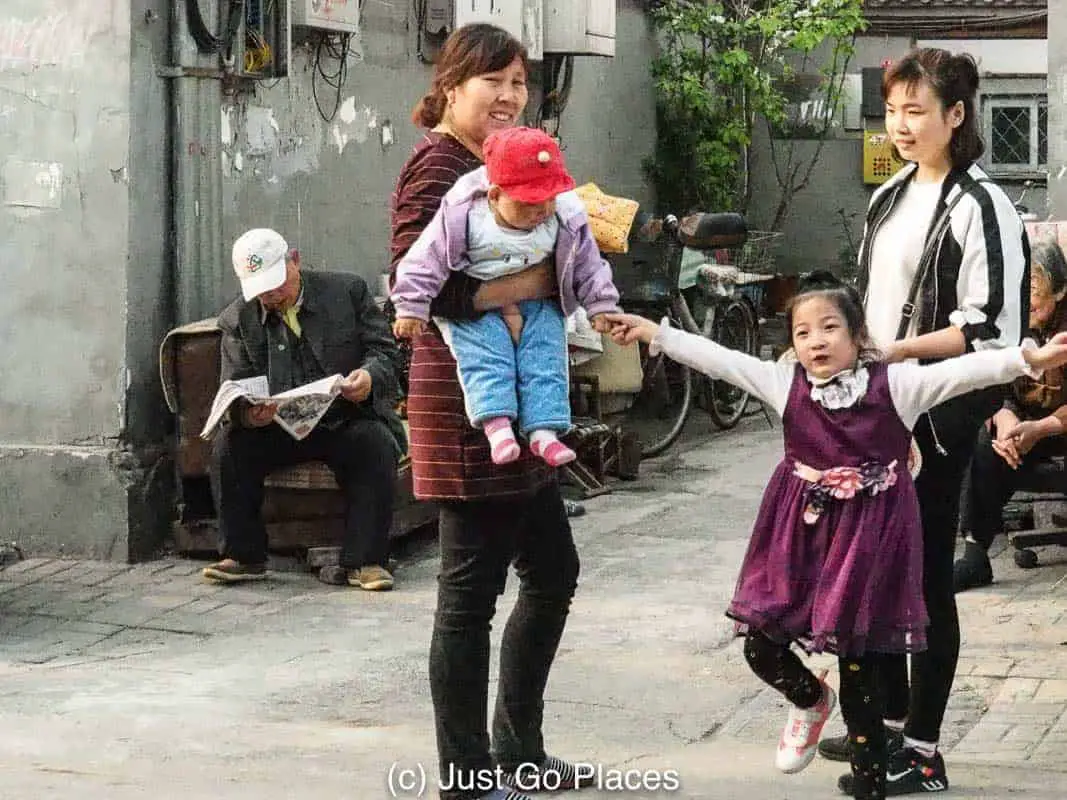
This little girl was dancing for our entertainment that I didn’t even notice her brother’s split trousers until I looked at the photo.
On the plus side, grandparents are really involved in their children’s lives. Many of them prefer the old ways of child-rearing, such as, for example, a disdain for diapers.
We saw children running around with what is called “split-pants” – their trousers are split in the front and back so that the kid can easily go to the toilet. Apparently, it’s more prevalent in the countryside, but we did see it in Beijing, too.
High Divorce Rate
The collapse of the usual large family structure has been cited as a reason for the increasing divorce rate in China. For example, the Beijing the divorce rate of 39% is actually higher than you would expect if you consider that it is only the younger generation getting divorced.

The whole process of getting married is a big business. Our tour guide told us he only goes to his friend’s first marriages.
Traditionally, Chinese families lived together. If your parents and in-laws are nearby, then they would expect to live with you. One big (un)happy family. If the average flat was about 80-100 square meters (approximately 1000 s.f.) with three bedrooms, then you can only imagine how difficult life can get with 8-10 people living together. Don’t forget that spoiled child either!
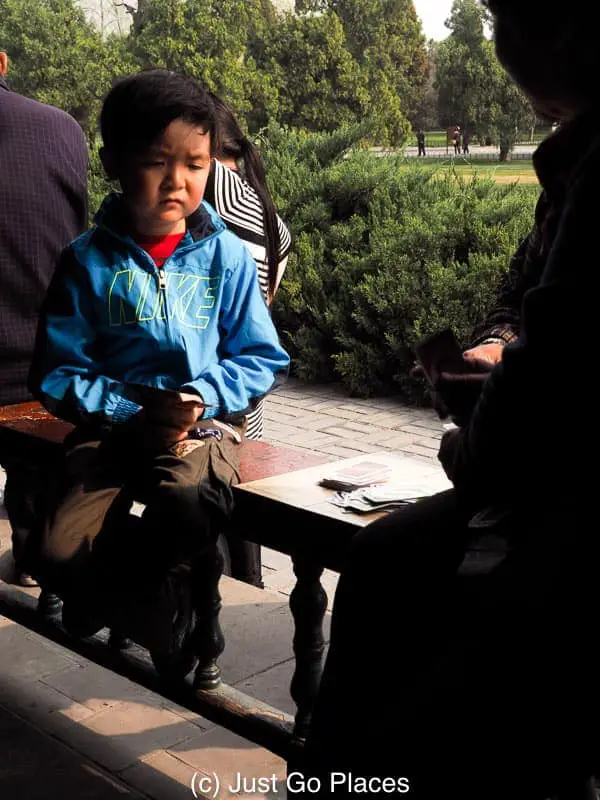
A grandchild is taken to the park to play Uno with his grandparents friends. I love this mix of old tradition and new game.
In fact, the spoiled child may be a reason for the high divorce rate. The Little Emperor syndrome doesn’t go away when the child grows up. Both partners in a marriage have spent their entire life thinking the world revolves around them. Such an attitude is not really conducive to the compromises that long-term marriage requires.
Urbanisation in the Name of Progress
This lady has a fan making store in Fuli village in Guangxi which was known for its makers of fans and coffins. Yes, interesting combo. The traditional coffin making businesses of the village died during Chairman Mao’s time when he dictated that the dead be cremated instead of buried.
She makes the fans and her grandparents do the painting. Now the fan-making business is under threat because the government is confiscating the old village houses in order to modernise the town to attract tourism. It’s being done in the name of progress but is it really a land-grab to give real estate opportunities to developer cronies?
She told us her family are still negotiating the price of their house which she showed us around. The large house (easily 2000 square feet) has been in their family for five generations since the Qing Dynasty. The premises doubles as the family home and fan store/workshop. They will be relocated into the usual Chinese small modern flat. Without a store front and fan making premises, she’s not sure that her family can continue in the business.
Forced Relocations
Outside of Guilin, we saw a large apartment complex that was lying empty. The buildings had been constructed to house 300,000 people from a village relocated due to the Yangtze River Dam but then they had been taken elsewhere.
We saw a show in light show at night in an open-air theatre in Yangshuo celebrating traditional Chinese agricultural life. The irony? They relocated a traditional village that had stood at the location to create this open air theatre.
[su_button url=”https://www.dpbolvw.net/click-8175409-12525324?url=http%3A%2F%2Fwww.tripadvisor.com%2FAttraction_Review-g303712-d1741379-Reviews-Impression_Sanjie_Liu_Evening_Showtime-Yangshuo_County_Guangxi.html” style=”flat” background=”#d0bb28″ icon=”icon: external-link” rel=”trip advisor”]Check the TripAdvisor reviews for Sanjie Liu Yangshuo Evening Show[/su_button]
The relocated farmers were compensated for their land and moved into the town of Yangshuo itself. The government provided a lump sum payment but no training for an alternative form of livelihood. So, people who have been poor farmers all their lives are suddenly given a chunk of change. Of course, they blow through the money quickly and then are left scrambling around trying to earn a living.
Around the Yangtze, the government wanted to build a dam to provide energy to the population. The motivation for the forced relocations around Yangshuo are to create a centre for domestic tourism. In fact, 90% of Guilin tourism is domestic. The landscape is renowned in China and even features on the 20 Yuan bill.
You can see developments for resorts aimed at Chinese domestic tourism sprouting up everywhere. The area around Yangshuo used to be rice farms and sugar plantations. Now, China imports 60% of its rice from Thailand because so much of the land has been converted for other uses. The former farmers are all catering to the tourist trade now which is the biggest game in town.
The Elderly in Modern China
This lady told us she was almost a 100 years old. She didn’t know exactly because she was never educated. She is also one of the more than 50 million illiterate people in China many of whom are over 70 years old.
She also claimed to have never been sick because she would treat her symptoms with Chinese medicine herself. She told us she was our children’s age when the Japanese started filtering through her province before the full-scale invasion.
We saw signs of traditional Chinese medicine everywhere. Chinese medicine seems to be an accessory to help modern medicine cope with the sick population. For example, we were in Xingping, a small city of 620,000 near Guilin with a high-speed train connection to Guangzhou and ultimately, Beijing. Yet, there is not one Western doctor in the entire city. The nearest hospital is in Yangshuo which we were told wasn’t that good. You needed to head to Guilin itself to get to a good modern hospital.

Snake wine is used to treat rheumatism. A live snake is dropped into the jar with bees along with rice wine to make snake wine.
Subtle and Not-So-Subtle Propaganda
Many people in Guangxi are still bitter about the Japanese invasion in their province from World War II. The cit of Guilin was flattened to a pancake by the bombing. On touristy West Street in Yangshuo, we saw a sign saying “No Japanese Welcome Here”. It’s safe to say feelings about the Japanese still run high.
Some of these sentiments are fanned by the hours of Chinese soap operas throughout the week. On pretty much every television station, there are soap operas about the Japanese invasion during World War II. We are talking 64 state owned Chinese television channels! There is a joke that there have been more Japanese killed on television soap operas than in the battles in China. It suits the government though to give the people a common enemy that isn’t them.
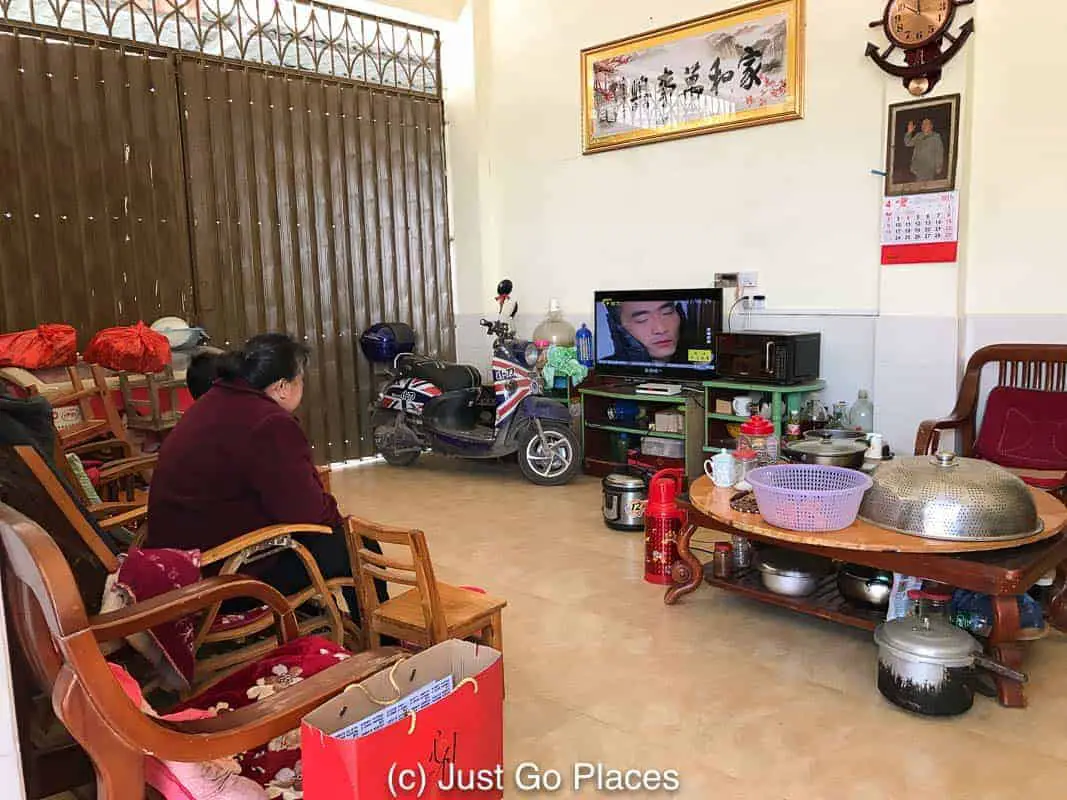
When my daughter refused to use the public squatty potty, this kind woman let us use the bathroom in her house. She interrupted her watching a Chinese soap opera about the Japanese invasion.
Joe told us about his grandmother who had died a few years ago in her late 90’s. She had been married 5 times before the age of 20! She was married at the age of 4 as the fourth wife of a local warlord, then again at age 10, age 12, age 16 and age 20. Her husbands kept dying off because they were all warlords. Her family would just marry her to another one. The 5th husband that she married at the age of 20 was a farmer and she went on to have four children by him. Her feet had been bound in the traditional custom of wealthy families as well. During the days of the Cultural Revolution, the local authorities would troop her out in front the crowds so that she could recount her tearful tale and denounce the old ways.
Currently the age of retirement is age 55 for women and 60 for men. Older people seem to have an active lifestyle. They help with the care of their grandchild. They meet up in parks to play traditional Chinese games or to exercise. For example, older people congregate in the park around the Temple of Heaven in Beijing. Entrance to the park is subsidised for local residents.
Frank, our Beijing travel guide, told us he offered to pay for his parents to join a local health club. They refused his offer. Not only did his parents like the social element of exercising at the park, they also remembered the grinding poverty during the Cultural Revolution and did not want to spend the money.
What Did We Think?
We thought the Chinese we met were incredibly resilient. The government is subtle in its authoritarianism. The Chinese have survived emperors, the Japanese, the Cultural Revolution and now are coping with the new ’socialism’. They have learned to bend with the wind so as not to break. I really wish I could have spoken Chinese to speak to people directly. As always, things get lost in translation but we learned enough to appreciate the Chinese people and their culture.
We were told by Frank to read [easyazon_link identifier=”0143121316″ locale=”US” tag=”jg20-20″]On China[/easyazon_link] by Henry Kissinger to understand modern China better. Interestingly, he has read both the Chinese version and the English version. The Chinese version just eliminates the whole section related to the Tiananmen Square protests of 1989. Reality is, after all, what we make it through our own filters.
This site generates income via partnerships with carefully-curated travel and lifestyle brands and/or purchases made through links to them. More information may be found on our Disclosure Policy.


